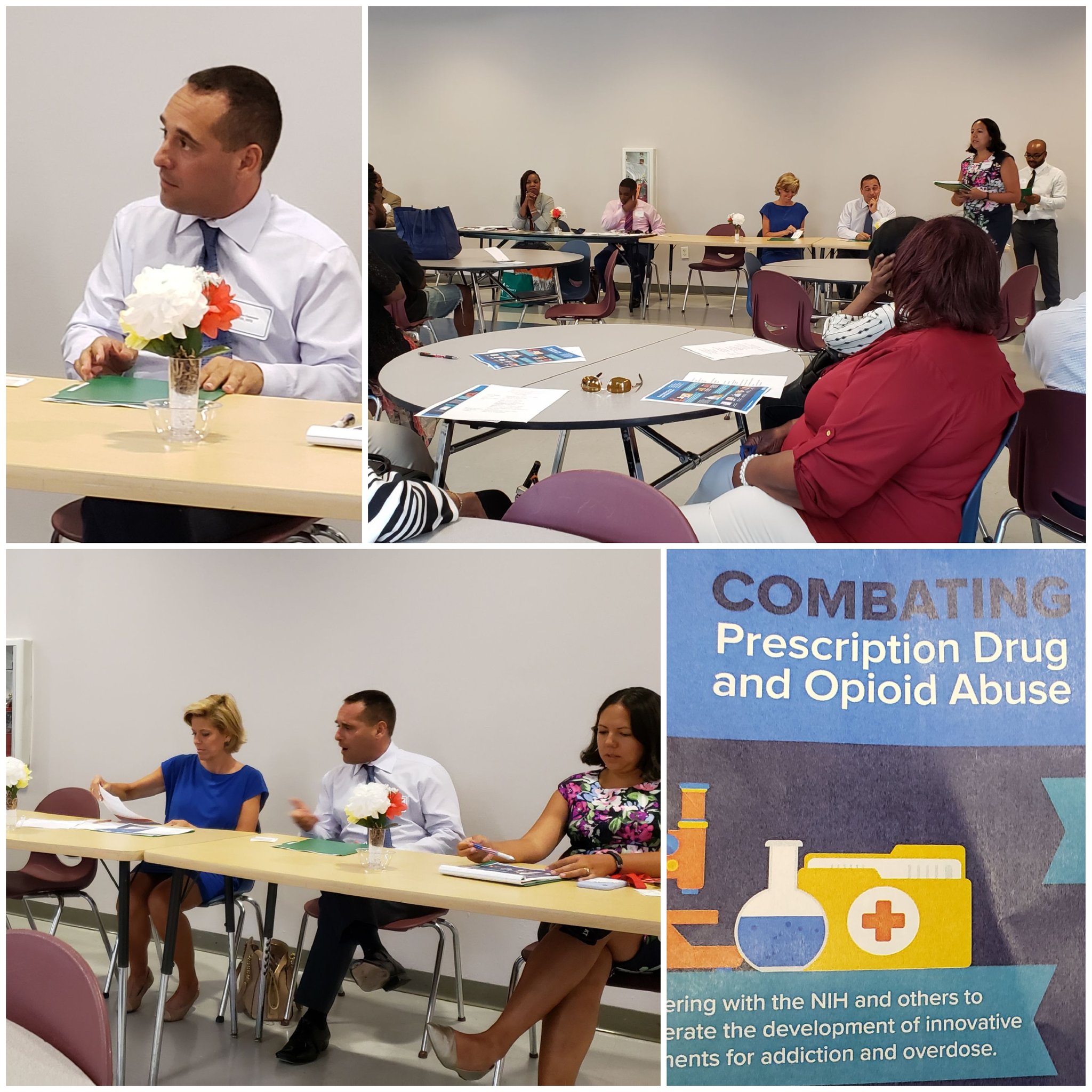Opioid Policies

Much like the rest of the United States, residents of the District of Columbia are struggling with substance use disorder (SUD) rate increases and high rates of opioid-related deaths. Unfortunately, these are multi-faceted issues that require year-long initiatives and systematic programs to address the myriad causes of addiction.
MSDC stands as a partner to the District government and private entities to help arrest the rates of opioid and substance abuse in the District. Through our advocacy for better prescribing practices, education on addiction, and even helping our own community through our Physician Health Program, MSDC is working to make DC a leader in reducing SUD, OUD, and addiction.
On a related note, MSDC is passionate about helping patients make prescriptions and medication more affordable. Whether expanding access to biosimilars or advocating for more affordable co-pays, MSDC wants to help our patients afford the medications they need.
MSDC Statement and Testimony on Opioid and Prescription Issues
25th Council information coming soon
Dr. Lisa Fitzpatrick uses her adventurous spirit to engage with patients

Dr. Lisa Fitzpatrick grew up in St. Louis, Missouri, and didn’t leave the state until she was ready for her internship in Michigan in 1992. Her internal medicine residency opened the world to her, and she has been making up for lost traveling time ever since.
She was the first person in her family to graduate from college and pursued medicine because “My mother said it was possible.” Her aptitude for science helped and when she applied to medical school, she was accepted. That acceptance opened the doors wide to an array of opportunities.
A residency program accepted Dr. Fitzpatrick in 1994 and soon after she boarded a plane for Swaziland. “It was only the second time I had been on a plane,” she confessed. It was during her residency that she chose the specialty of infectious diseases and public health. “I like the investigative approach to medicine involved in infectious diseases and how these diseases can impact the entire world,” she said. “The COVID-19 pandemic is a perfect example,” she added.
After Swaziland, she spent some time in Kenya before shifting gears when she returned to the United States for her Fellowship in Colorado. It was there that she learned to snowboard. Since high school she’d enjoyed competing in sports and in Colorado even found time to play racquetball competitively. After fellowship she was accepted into the Epidemic Intelligence Program at the CDC in Atlanta, Georgia.
Her magnum opus was the last field investigation she conducted for the Centers for Disease Control and Prevention. “We studied HIV transmission in 31 Georgia prisons. It was a multidisciplinary team that conducted computer-assisted surveys, performed genetic sequencing, conducted focus groups and reviewed clinical records and history over the course of six weeks,” she said.
The findings were not well-received. I think the study findings were an embarrassment to public officials . “We know HIV is a sexually transmitted disease. One of the findings was that guards were having sex with the inmates. Also, the prison system did not make condoms accessible, so inmates would improvise for protection and use things like plastic wrap.”
While the study results were published, the publication lacked granular detail. “Sometimes people don’t consider what they are going to do with the information when they ask for a study to be conducted,” she said. The elegancy of the sophisticated analysis is what makes Dr. Fitzpatrick most proud of this work.
In 2019, she launched Grapevine Health, a digital health media company, to build trust and improve patient engagement among Medicaid patients through delivering culturally appropriate and relatable health information. “People tend to avoid healthcare because they don’t understand it. In some circumstances, people wait until their situation is dire and it becomes too expensive, or even too late.”
The goal of the digital health media company is to be relatable to its constituents. “We focus on Medicaid patients and other underserved communities in the African American community. We are currently working within our geographic community and conducting focus groups but are looking to scale this model nationally.”
Some of her successes to date include increased vaccination rates during the COVID-19 pandemic and increased engagement among out of care diabetics with diabetes information. Grapevine’s target audience is the Medicaid audience between the ages of 35 and 65 with chronic health conditions. She hopes to improve healthcare engagement and quality of life for these patients through culturally appropriate health education delivered by trusted messengers
Infectious Diseases and epidemiology are just two of Dr. Fitzpatrick’s many interests. Her life’s goal is to become public health photojournalist and a luxury spa reviewer. Until then, she travels and reviews spas on her dime.
She also enjoys adding to the list of 41 countries she has visited. This active, outdoor adventure-seeking physician has spent 12 days biking from Hanoi to Saigon in Vietnam and lounging at the Modern Elder Academy in Baja, Mexico. On her bucket list are trips to visit friends in Brazil, Bali, Australia, and New Zealand. As she makes up for years spent in St. Louis, she has yet to visit Wyoming but plans to brush up on her snowboarding there soon.
Dr. Fitzpatrick is adamant that she will find a way to engage her audience to listen to what she has to say, and what they need to know, about healthcare. One path she will be pursuing is Stand Up Comedy and has enrolled in a stand-up class that begins in February. “People turn to social media to be entertained. I would like to add entertaining content on social media about healthcare. There is something about healthcare that makes people reluctant to make fun of it. I think we need to make jokes about our healthcare system. Maybe then people will listen.”
Dr. Fitzpatrick has been a member of the Medical Society of DC on and off for years and consistently for the past five years. She is part of the Women’s Group and enjoys being pulled into other projects on an as-needed basis.
Upon retirement, she will work toward her goal to become a public health photojournalist and help people learn about health and public health through other cultures, especially if the luxury spa opportunity never comes to fruition.
Do you know a physician who should be profiled in the MSDC Spotlight Series? Submit a nomination to Robert Hay, hay@msdc.org, for a future story. MSDC membership is encouraged for featured physicians.
Sample of Legislation MSDC Tracked on Opioid and Prescription Policy
What does it do? The bill authorizes licensed pahrmacists to dispense interchangeable biological products and requires notifications to physicians when such interchangeables are dispensed.
MSDC position: MSDC has a position of priority support on this legislation, identifying its passage as one of its highest legislative priorities.
Current status: SUCCESS. The bill was passed by the Council and signed by the Mayor.
What does it do? The bill requires prescription opioid medications to include a statement that the drug is an opioid and opioids may cause dependence, addiction, or overdoes.
MSDC position: MSDC supports the legislation.
Current status: The bill had a hearing before the Committee on Health on July 29, 2020. MSDC leader Dr. Sam Kareff testified for the Medical Society. It passed the Council on November 10 and was signed by the Mayor December 7.
What does it do? The bill prohibits insurance companies from factoring the use of PreP in decisions related to disability, life, or long-term care policies.
MSDC position: MSDC supports this legislation
Current status: The bill was introduced on January 8, 2019 and assigned to the Committee on Business and Economic Development.
